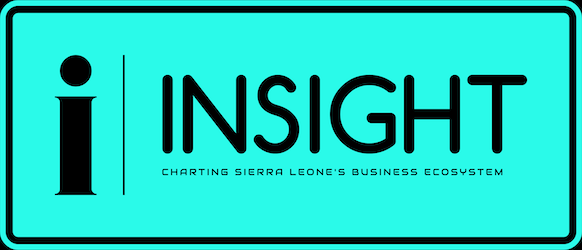
We can hear the women singing before we even arrive at Konta Bana Community in Port Loko District. “All ooman – comot nah do. All ooman comot nah do” – all women come outside.
We can hear the women singing before we even arrive at Konta Bana Community in Port Loko District. “All ooman – comot nah do. All ooman comot nah do” – all women come outside.
It’s a rallying cry for the Konta Bana women, and as #TheEUandMeRoadShow turned the corner, they came into sight. There were over 100 of them, dancing to show us just how much they valued the unprecedented victory of one of their number – Aminata Kamara, who stood for election as the village’s deputy head two years earlier. In a fiercely contested battle against a popular youth candidate, she triumphed in an environment which had never before even contemplated a female village head. It’s clear from the celebratory mood, that Konta Bana’s women remain delighted with their success.
As the village’s first deputy headwoman, Aminata has shown that gender relations in some of the most isolated corners of Sierra Leone can change, with sustained and committed support. In Port Loko, Bombali and Kambia, an EU-Trocaire project, with local implementing partner Centre for Democracy and Human Rights (CDHR), is working to help establish women’s farmer community-based organisations, providing advice and training so rural women understand and can confidently implement their legal rights. As a member of the Konta Bana group, Aminata had the backing of its members and the help of Trocaire and the Centre for Democracy and Human Rights to design and deliver a successful campaign.
Aminata now plays an important role within the community. She adjudicates disputes, contributes to the planning and implementation of village development and has been instrumental in a saving scheme that allows villagers to borrow money for bigger investments such as school fees.
Her success represents ground-breaking change in her community and she is a strong role model for other women and girls with leadership aspirations.
From Konta Bana, #TheEUandMeRoadShow travelled with the Trocaire and CDHR team to meet Isatu Fofanah in Robaka (also in Port Loko).
There was joy here too, but the stories we heard revealed how society can push women to breaking point, despite laws that are there to protect them.
Isatu, a grandmother, is a member of the Robaka community based organisation. Such is the trauma of her experience, that she cries soundlessly at the memory of it. The tears dripped down her face, the entire time she narrated her story. They were reflected in the women around her, who had come to listen and provide support.
Isatu comes from a wealthy local landowning family. For years, she had been told that she was not entitled to family land. “It is taboo for women to own land”, her brothers told her.
She had been reduced to sleeping on the floor of a derelict garage with her children and grandchild, when information on her land rights from the EU-Trocaire project, and the backing of other women in the community organisation gave her the courage to challenge her brothers.
The struggle wasn’t an easy one, but with access to correct information, advice on how to present her case and fight for her rights, as well as the vocal and unflinching support of the other members of the women’s CBO, she eventually won her case.
She has built a small house for herself and her children. Behind it is a field, which allows her to do a little farming. Isatu has come a long way. She still cries, but she tells us that the support she received from the EU-Trocaire project – Civil Society Strengthened to Support Rural Women’s Agency, Empowerment and Influence in Local Governance and Agricultural Development Processes in Northern Sierra Leone – literally saved her life.




Be the first to comment